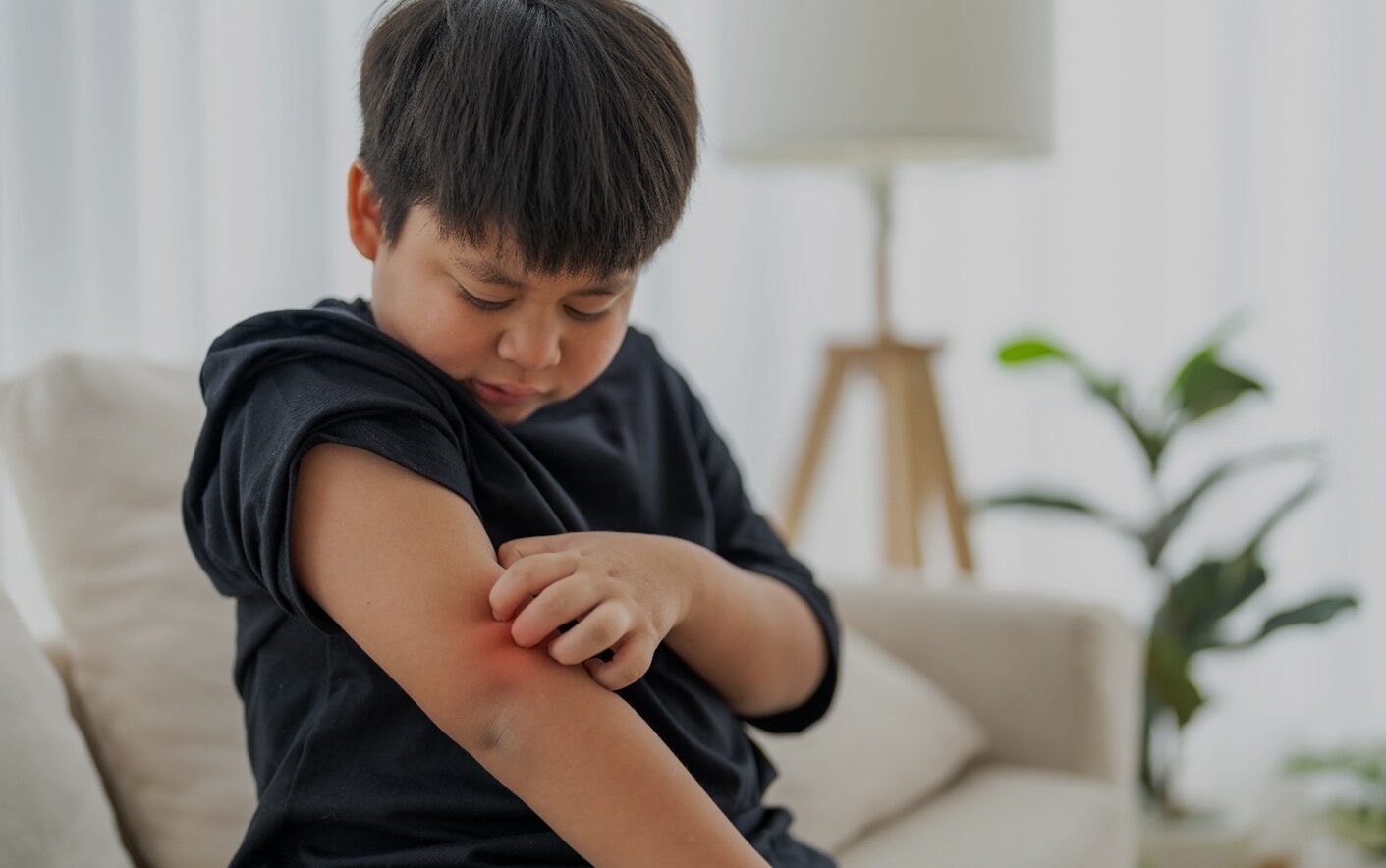What is mastocytosis?
Mastocytosis is the abnormal growth of mast cells in the body. Mast cells are part of the immune system, which helps protect your body against infection. The most common form of mastocytosis is when mast cells accumulate on the skin, causing reddish-brown spots or bumps. In rare cases, mastocytosis can affect other parts of the body. These include the stomach, the intestines, and the bone marrow.
Mastocytosis can occur in people of any age. It is usually mild in children, and they often outgrow it.
What are mast cells?
Mast cells are a kind of cell made by your bone marrow. They’re part of your immune system, which helps you fight off infections. There are more of these cells in your skin, lungs, and intestines than in other parts of your body.
Mast cells make a chemical called histamine. Normally, this chemical serves as a kind of alarm. It lets the immune system know that an infection is attacking part of the body. Histamine can cause swelling, itching, and redness. It is released when your body reacts to something like an insect bite or a bee sting (called an allergic reaction).
Symptoms of mastocytosis
The symptoms are different, depending on where the extra mast cells are. If there are too many mast cells in your skin, you might have a red and itchy rash. You could get hives or have a rash that looks like freckles. If you rub the rash, it may get red and swollen. Sometimes the mast cells collect at one spot in your skin and cause one large lump.
If the mast cells are in your stomach and intestines, you might have diarrhea and stomach pain. This is a rarer form of mastocytosis.
In some people the extra mast cells cause a serious reaction. It might be like a bad allergy reaction. This is very rare. Their blood pressure may suddenly drop to a low level, causing them to faint. They may have trouble breathing. This reaction can cause death if treatment isn’t started right away.
Possible symptoms of mastocytosis include:
- Red, itchy rash
- Rash that looks like freckles
- Hives
- One large lump on the skin
- Diarrhea
- Stomach pain, nausea, or vomiting
- Fainting
- Difficulty breathing
What causes mastocytosis?
Doctors don’t know exactly why some people have too many mast cells. Some of the things that trigger the release of histamine from mast cells also cause the symptoms of mastocytosis. Symptoms may be triggered by cold or heat, certain medicines, emotional stress, and insect bites. However, the triggers aren’t the same in every person.
How is mastocytosis diagnosed?
The symptoms of mastocytosis can be similar to the symptoms of many other health problems. Your doctor may do a skin biopsy to find out what is causing your symptoms. To do a biopsy, your doctor removes a small piece of skin and puts it under a microscope to look for extra mast cells. When an adult gets mastocytosis, the doctor may order a bone marrow biopsy. The biopsy allows doctors to look for other blood diseases that might come along with the mastocytosis.
If you don’t have a rash but you have other symptoms, such as diarrhea, your doctor may do a blood test or a urine test.
Can mastocytosis be prevented or avoided?
There is no way to completely avoid mastocytosis. But you may be able to help prevent symptoms by learning what triggers mastocytosis for you.
Mastocytosis treatment
There currently is no cure for mastocytosis, but treatment can help stop your symptoms.
Antihistamines (which are often used to treat allergies) are helpful. If a rash bothers you, your doctor may suggest that you be treated with ultraviolet light. If you have diarrhea, an oral version (taken by mouth) of a medicine called cromolyn sodium (brand name: Gastrocrom) may help relieve digestive problems.
The best treatment for mastocytosis may be to stay away from the things that seem to trigger your symptoms. It may help if you and your doctor list all the things that cause you to experience symptoms. Did your symptoms start after you were exposed to heat or cold? Felt stressed? Took a certain medicine? Got an insect bite? Share your list of triggers with your doctor.
Living with mastocytosis
Mastocytosis can cause a severe allergic reaction in some people. It’s a good idea to always keep an emergency kit with you. This way, you can give yourself medicine to stop a dangerous reaction. Your emergency kit should include an EpiPen, Benadryl, and Pepcid.




